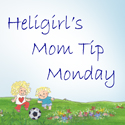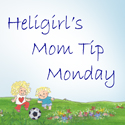Parenting Theory
I refer in my blog about the incredibly parenting theory and advice I’ve learned. I use a lot of terms interchangeably – Positive Discipline, Compassionate Parenting, Positive Parenting, Connection Parenting, etc. – but that’s mainly because the authors and Ph.D. types who coined the techniques each have different names they prefer.
However, all of these terms describe a basic foundation of parenting theory that is very positive, respectful and nurturing. They work together toward a common goal of raising capable, confident, empathetic, thoughtful, critical-thinking, and well-behaved children with strong self-esteem.
Positive Discipline
This is a child raising philosophy coined by Jane Nelsen Ed. D. She’s written several books on Positive Discipline – Positive Discipline-Raising Children Who are Responsible, Respectful, and Resourceful and Positive Discipline A-Z: 1001 Solutions to Everyday Parenting Problems covering all age groups as well as special circumstances. (You can get any of the books at the best price at Amazon, using the link above if you’re interested.) I think the website, www.positivediscipline.com, best describes the philosophy:
Positive Discipline is a program designed to teach young people to become responsible, respectful and resourceful members of their communities. Based on the best selling Positive Discipline books by Dr. Jane Nelsen and co-authors Lynn Lott, Cheryl Erwin, Kate Ortolano, Mary Hughes, Mike Brock, Lisa Larson and others, it teaches important social and life skills in a manner that is deeply respectful and encouraging for both children and adults (including parents, teachers, childcare providers, youth workers, and others).
Positive Discipline (as well as compassionate parenting and positive parenting) is based on Adlerian Theory. Dr. Adler (1870 – 1937)Â introduced the idea of parenting education to United States audiences in the 1920s. He advocated treating children respectfully, but also argued that spoiling and pampering children was not encouraging to them and resulted in social and behavioral problems.
When I talk about Positive Discipline and Adlerian Theory, they’re basically the same good stuff. Connection Parenting is another buzzword, coined by Pam Leo. Her book Connection Parenting: Parenting Through Connection Instead of Coercion, Through Love Instead of Fear has a LOT of great insight. That one took me the longest to read because I kept taking notes. Basically, how we treat our kids determines how they behave. One of my favorite lines I’ve read over and over again in books about this philosophy goes something like:
Who thought that by treating our children poorly we can encourage them to act better?
The basic components of Positive Discipline:
1. Children need a sense of belonging – foster this and you’ll all have a much better ride
2. Use kindness and firmness – shows respect for the child and yourself
3. Teach children how to think, not what to think
4. Give children a sense of purpose and belonging in the family and a say (within reason). Kids won’t rebel against their own ideas.
5. A misbehaving child is just a frustrated/disconnected child. Address the frustration and reconnect and the behavior improves.
Of course, this is the really quick snapshot. Lots of books give you the tools. The website is a great resource too. I’ve also attended an incredible series of classes on the topic through the Puget Sound Adlerian Society. Their website is not that great to navigate, but there is a lot of background info and keywords to help you search for a class near you.
Additionally, I found this website to be very useful: Half Full: The Science of Raising Happy Kids. This is a blog by Christine Carter, sociologist and the executive director of UC Berkeley’s Greater Good Science Center. She posts a lot of good articles that are very relevant to this topic.
I write weekly articles on these theories. They’re all listed right here.
As I find more great sources for you, I’ll post them here so stay tuned and check back!
















